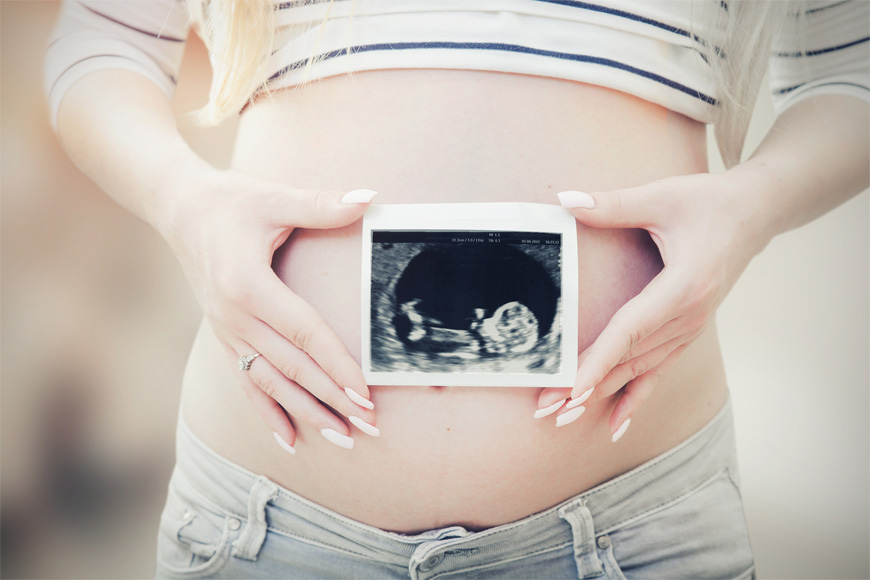Here's information about what menopause is, when it happens and what happens.
6 March 2013
| Last updated on 29 May 2017
Menopause means the last menstrual period. It is a natural phenomenon. Periods stop because the low levels of estrogen and progesterone do not stimulate the lining of the womb (endometrium) which stays thin and does not bleed. Levels of FSH and LH subsequently rise. The resulting low, and changing levels of ovarian hormones, particularly oestrogen, are thought to be the cause of menopausal symptoms and later consequences in women.
Menopause - when?
The average age of the natural menopause is 51 years, but can occur much earlier or later. Menopause occurring before the age of 45 is called early menopause and before the age of 40 is premature menopause (premature ovarian failure). Late menopause may also occur but by the age of 54, 80% of women will have stopped having periods.
Premature Ovarian Failure (POF) can be primary POF due to chromosome abnormalities, Enzyme deficiencies, and autoimmune disease, or secondary POF as a result of chemotherapy, and /or radiotherapy, removal of ovaries, infection like TB and mumps, and autoimmune causes. Premature or early menopause may follow surgery such as hysterectomy when the ovaries may be removed along with the womb, or may occur early even if the ovaries are left in place at the time of hysterectomy.
Smoking and other factors
Smoking and low socio-economic factors: previous oral contraceptive history, BMI, ethnicity, family history, can affect the age of menopause. It is found that the risk of early menopause is nearly doubled for the heaviest smokers, however women who were smokers, but quit at least 10 years before menopause, were substantially less likely than current smokers to have stopped menstruating before age 45.
Compared with married women, widows were also at increased risk of early menopause, as were women who said they were in poor health. More educated women were less likely to go into menopause early, but they were also less likely to be smokers.
High social participation also cut early menopause risk. The researchers found no link between coffee or alcohol consumption or passive exposure to smoke and early menopause risk.
What are the symptoms of menopause?
Epidemiological studies have identified only vasomotor dysfunction (hot flushes and sweats) and vaginal dryness as being consistently associated with the menopausal phase. Other common symptoms, such as mood changes, sleep disturbances, urinary incontinence, cognitive changes, somatic complaints, sexual dysfunction and reduced quality of life, are less specific for the menopausal period and more affected by social or cultural circumstances and expectations. Brittle nails, thinning of the skin, hair loss and generalised aches and pains are thought to be due to falling oestrogen levels.
Menopause and associated diseases:
The relationship between the menopause and the development of associated conditions is sometimes difficult to differentiate from age-related morbidity, but is best demonstrated in cases of premature primary and secondary ovarian failure. Cardiovascular disease including coronary artery disease, stroke and peripheral vascular disease, is thought to be related to vascular endothelial dysfunction related to oestrogen deficiency. The link of osteoporosis with oestrogen deficiency is well-documented.
The risk of developing postmenopausal osteoporosis is thought to be genetically driven, which may explain the variable response to HRT in some women. Symptoms of urogenital atrophy may appear for the first time more than 10 years after the last period. Body fat tends to be redistributed around the abdomen with age. This is recognised as being an independent risk factor for cardiovascular disease and diabetes. Alzheimer's disease is two to three times more common in women than men, suggesting a hormonal association, but there is no good evidence currently that HRT (oestrogen alone or oestrogen and progestogens) prevents cognitive decline in older postmenopausal women when given over the short- or longer-term.
Specialist Gynecologist
- Tags:
- Menopause
- healthcare
- Health


























.png?itok=HBSyMDok)





















































































.png?itok=0fOAXkOm)















.png?itok=EH_x0Pha)













